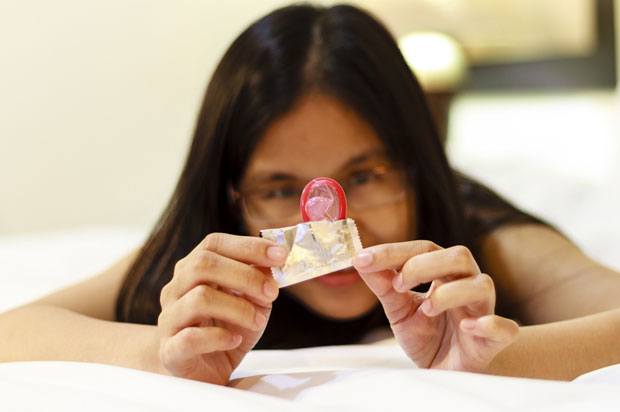Why is sex painful? The causes of painful sex
Pain should not be a part of healthy sex. And you can quote us on that. If you’re wondering why sex is painful for you, The Mix has put together a list of common causes of painful sex. Your discomfort may be caused by one of the following things...

Painful sex because of inadequate foreplay
There are tonnes of potential reasons for sexual intercourse being uncomfortable. For example, a hymen that isn’t stretched can cause pain the first few times. This means that it’s important to be relaxed and aroused, and for the vagina to be sufficiently lubricated before penetration. The trick is to take time getting intimate with your partner. Start by just kissing, touching and caressing. Honestly, you should aim to make sex an extension of this foreplay, rather than an act in its own right. If you go in with this attitude, hopefully things will be better.
Lack of lubrication
A vagina’s natural lubrication can be reduced by a lot of things. These factors span the entire range from boozing to breastfeeding. As a result, you could be getting into bed with your celebrity crush and still feel as dry as a desert state. Good news is, there’s a solution (which doesn’t involve any medical treatments) Lubricating products will sort you out in no time. Plus it might add to the excitement. Just make sure to avoid anything oil based (such as massage oil, moisturiser or Vaseline) as this can damage condoms and be hard to wash out afterwards. Instead, go for popular water-based brands.
Vaginal infection causes painful sex
Why is sex painful? The answer may be more straightforward than you think.
A number of local infections can make for painful sex if you have a vagina. Thrush is one of the most common ones. It’s an easily treatable yeast infection that causes the vagina to become raw and itchy. Unpleasant, we know. But if you feel like this might be you, it’s best to see your GP or local GUM clinic. Some sexually transmitted infections such as trichonomas, chlamydia, genital warts or herpes can also cause vaginal discomfort during sex. So make sure to keep an eye out for those. Whatever your situation is, you can always reduce your risk of STI infection by avoiding unsafe sex and using condoms.
General soreness
The vagina is a sensitive area. It can be easily irritated by perfumes, strong soaps and bubble bath. You should probably avoid nylon underwear and tight fitting trousers while you’re at it. All it takes is a little ‘penis chafing’ to inflame the situation, and you can pretty much say goodbye to your chance of a good time. We’d recommend taking preventative measures like using a mild, unscented soap when you wash. Also steer clear of vaginal deodorants and talcs, and stick to cotton underwear.
Vaginismus
We’re sure that you’ve got your basic knowledge of Vaginismus from Sex Education. But, please, allow us to fill in the blanks.
This is an involuntary tightening of the vaginal muscles, which can make for painful sex, if penetration is even possible. The origin is generally believed to be psychological, and often rooted in sexual anxiety. This means that a vaginismus sufferer may not consciously identify with such problems. So counselling may be needed to help resolve the issue. For further help, see your GP or visit your local family planning clinic, and ask them to refer you to an appropriate therapist.
Deep pelvic pains
Pain coming from deep in the pelvis, rather than the entrance of the vagina, can have a number of different causes. Common reasons for this discomfort include pelvic inflammatory disease (often caused by chlamydia infection) and endometriosis (where tissue similar to the womb lining starts growing outside the womb). Both of these are linked to ill health and fertility problems, so it’s best to seek medical treatment if you have this symptom.
If painful sex persists
The bottom line is sex shouldn’t hurt. Full stop. If you’re still thinking ‘why is sex painful’, then ask your doctor to refer you to someone from a team of obstetricians and gynaecologists. They can check for any local infection that could be causing discomfort. Plus it’ll give you a chance to talk about contraception and safer sex.
Next Steps
- Chat about this subject on our Discussion Boards.
By Nishika Melwani
Updated on 28-Dec-2021
No featured article














